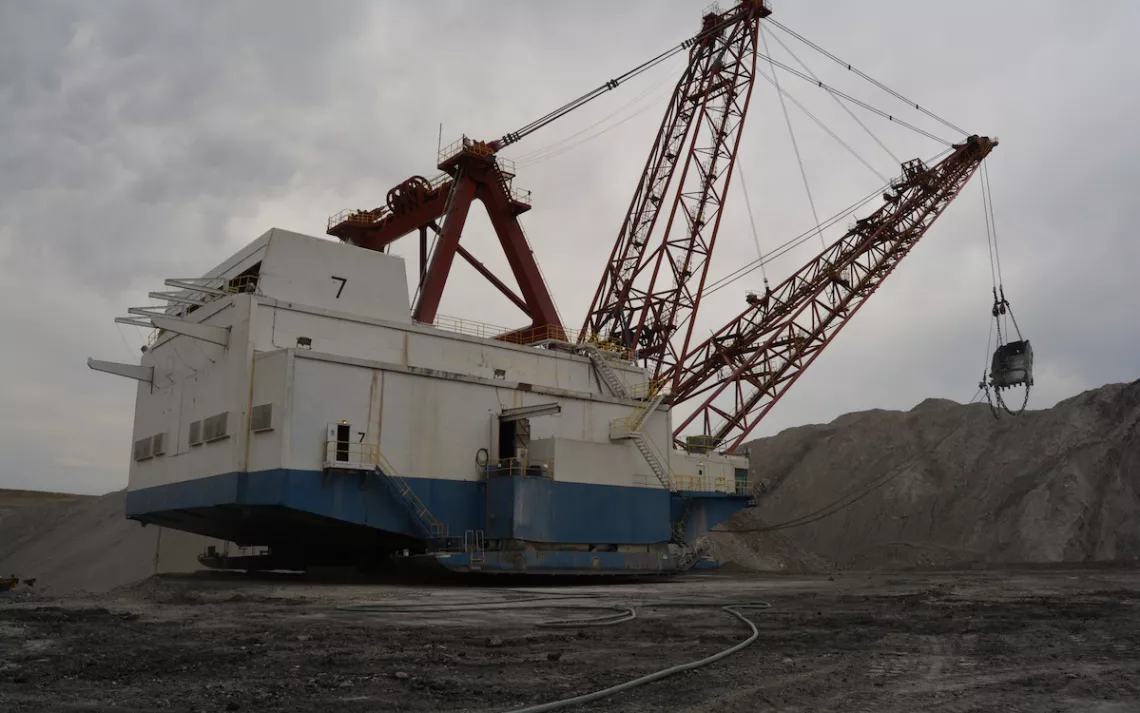Federal Judge Puts the Brakes on BLM’s Coal Giveaway
Court rules that the agency must consider climate change in leasing decisions
It seemed like a slam dunk—a coal-friendly Bureau of Land Management rewriting its plans for coal mining on public lands during what is easily the most coal-besotted administration in decades. Instead, U.S. District Court judge Brian Morris ordered Montana's and Wyoming’s BLM officials to take their management plans back to the drawing board and factor in an element that they hadn’t bothered to include: climate change.
The ruling is a sign of the persistent legacy of the Obama administration—Morris is an Obama appointee, and the mandate to take climate change into account when managing public lands stems from Order no. 3289, a 2009 directive from another Obama appointee—former secretary of the interior Ken Salazar. The Salazar directive stated that “each bureau and office of the department must consider and analyze potential climate change impacts when undertaking long-range planning exercises, setting priorities for scientific research and investigations, developing multiyear management plans, and making major decisions regarding potential use of resources under the department’s purview.”
Morris sent the BLM officials back to their offices with clear instructions to work with the environmental groups that had brought the lawsuit against the agency (the Western Organization of Resource Councils, Montana Environmental Information Center, the Powder River Basin Resource Council, the Northern Plains Resource Council, the Sierra Club, and the Natural Resources Defense Council) to develop management plans for Powder Basin that would involve less, rather than more, coal mining. “Consideration of alternatives falls at the 'heart' of the NEPA-mandated environmental impact statement,” Morris wrote in his ruling.
Particularly worrisome, in Morris’s judgment, is that residents of both Montana and Wyoming had raised questions about climate change during the scoping sessions held to gather community input about the new management plan—concerns that the regional BLM officials proceeded to completely ignore. The Powder River Basin, which has been heavily mined since the 1970s, is the source of 40 percent of all the coal burned in the United States, and 10 percent of the country’s annual greenhouse gas emissions. Mining in the area is heavily subsidized by both the federal government and local governments: Leases are often not open to competitive bidding, and the coal that is auctioned away is often priced at far below market value.
Mining companies avoid paying fair market royalties on the value of the coal they extract by pricing it artificially low when it is first taken out of the ground and selling it to a subsidiary of the same company, which can then resell it on the open market and pocket the difference. Companies aren’t required to buy outside insurance to pay for any environmental hazards created by mining, which means that when anyone tries to collect for damages, they can simply go bankrupt.
Even with those subsidies—which were limited during Sally Jewell’s tenure as secretary of the interior and reinstated under Ryan Zinke’s—coal mining in the basin has declined from its 2008 peak, due to low natural gas prices, stricter clean air regulations, and grassroots opposition on the proposed West Coast export terminals that would enable mining companies to ship U.S. coal to countries with weaker air quality regulations.
 The Magazine of The Sierra Club
The Magazine of The Sierra Club




